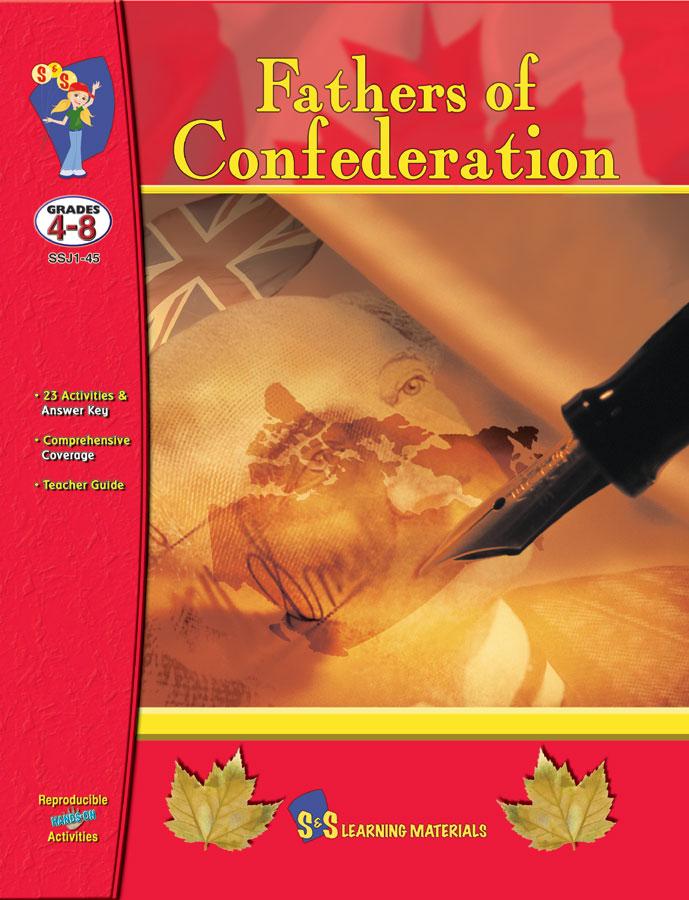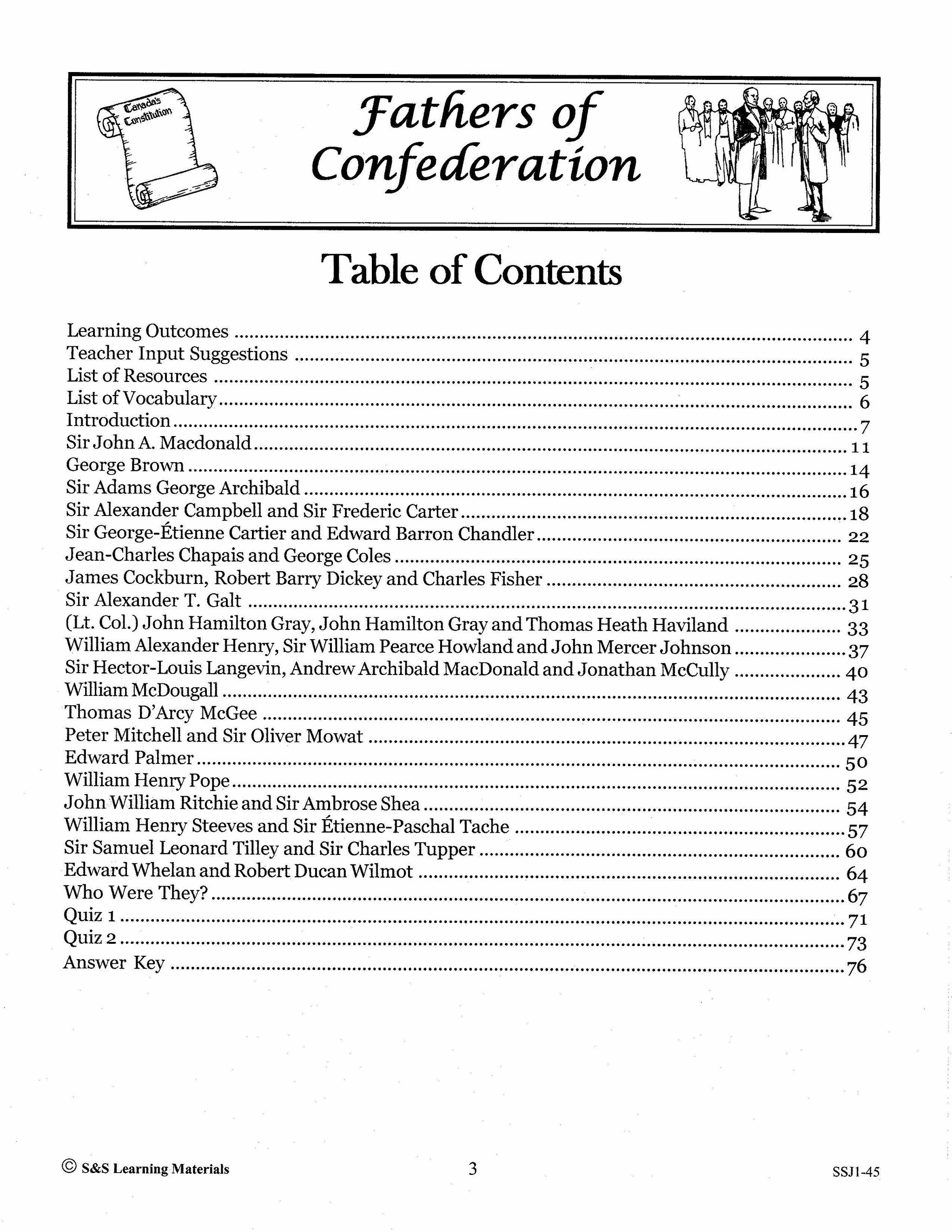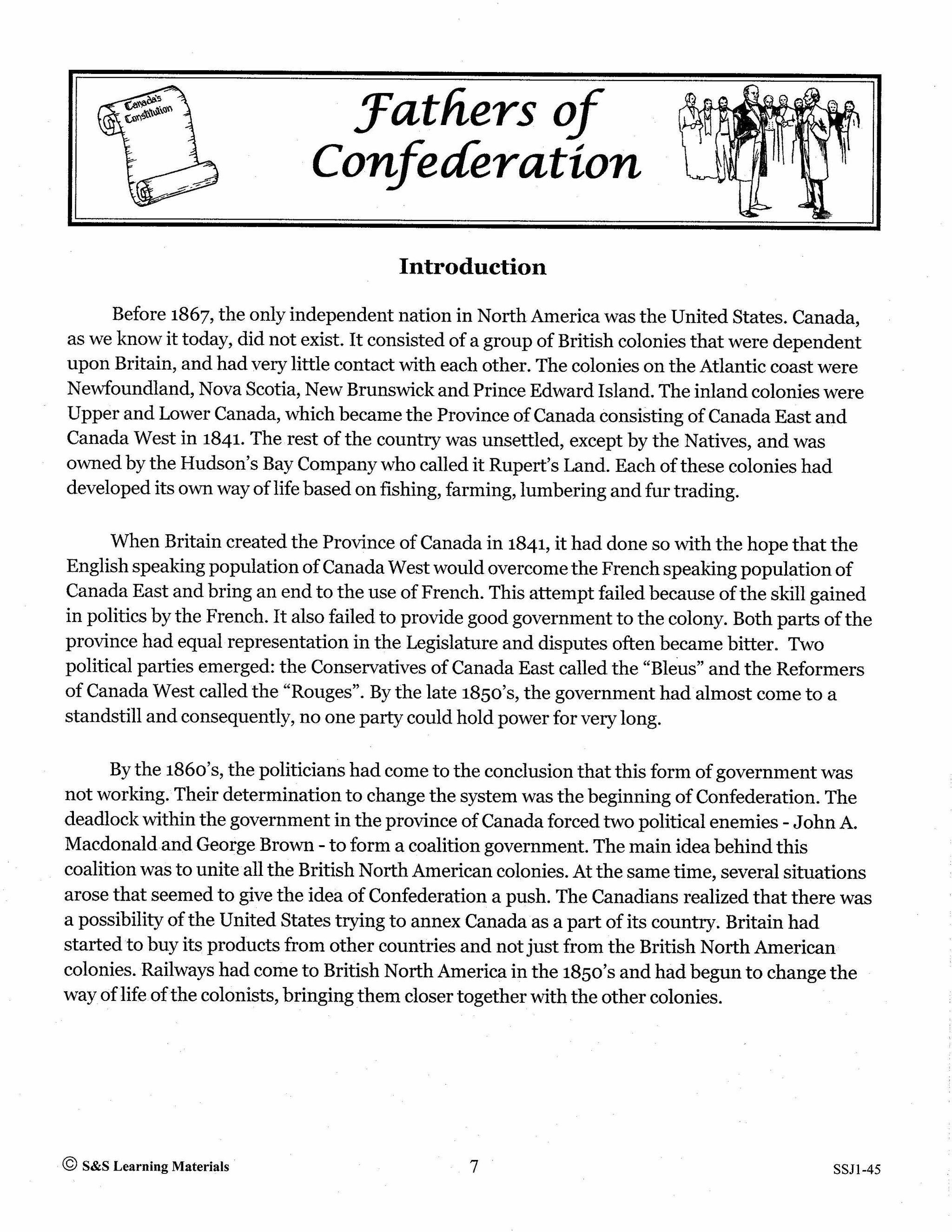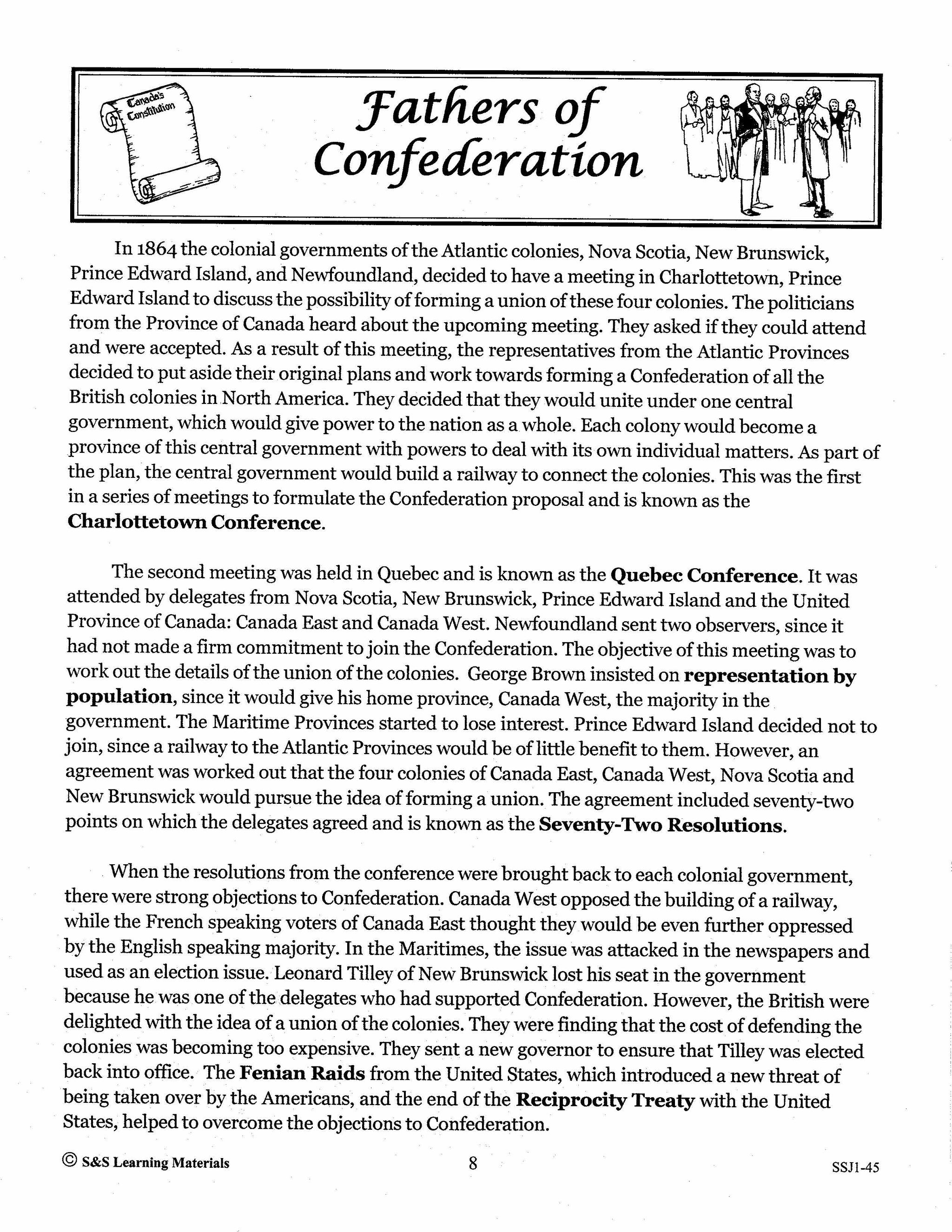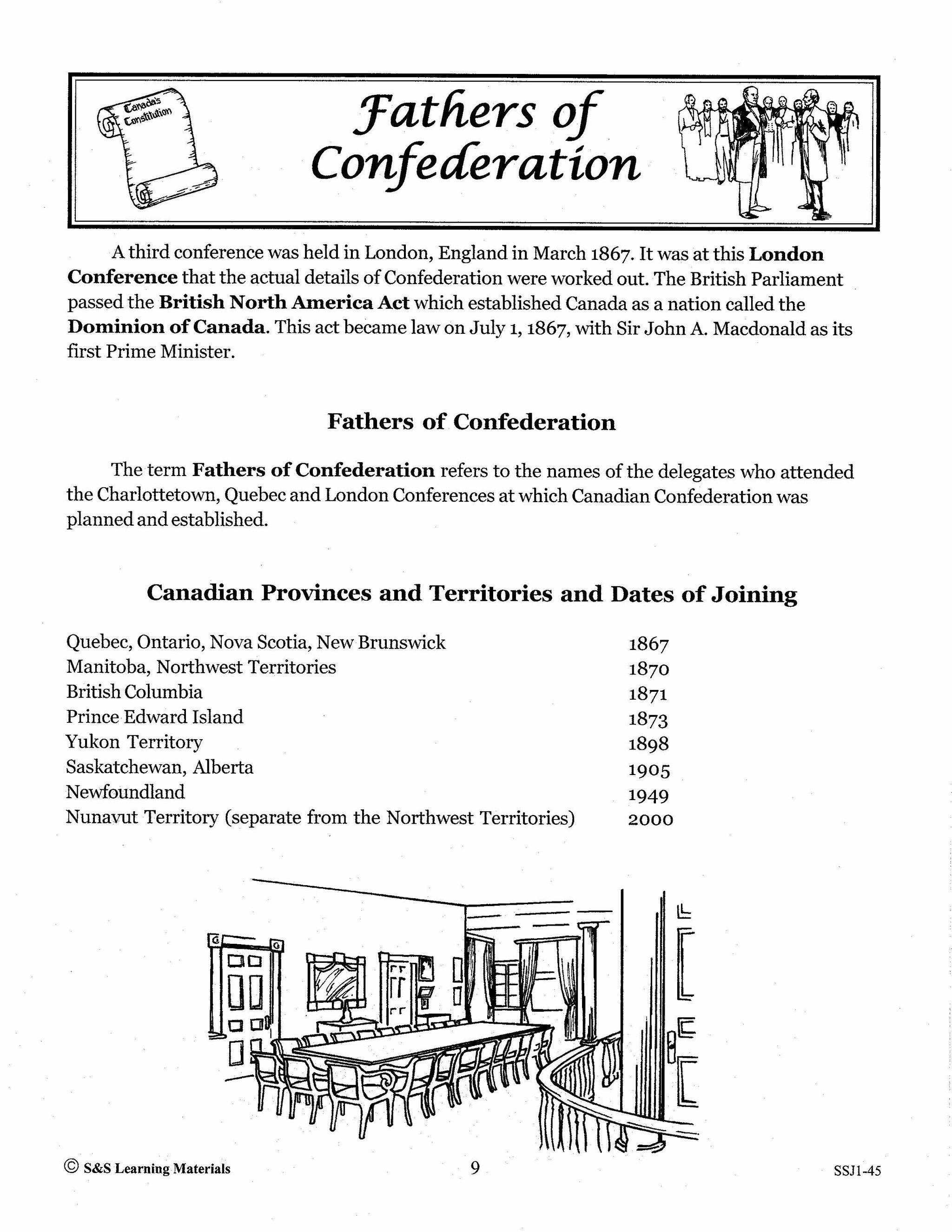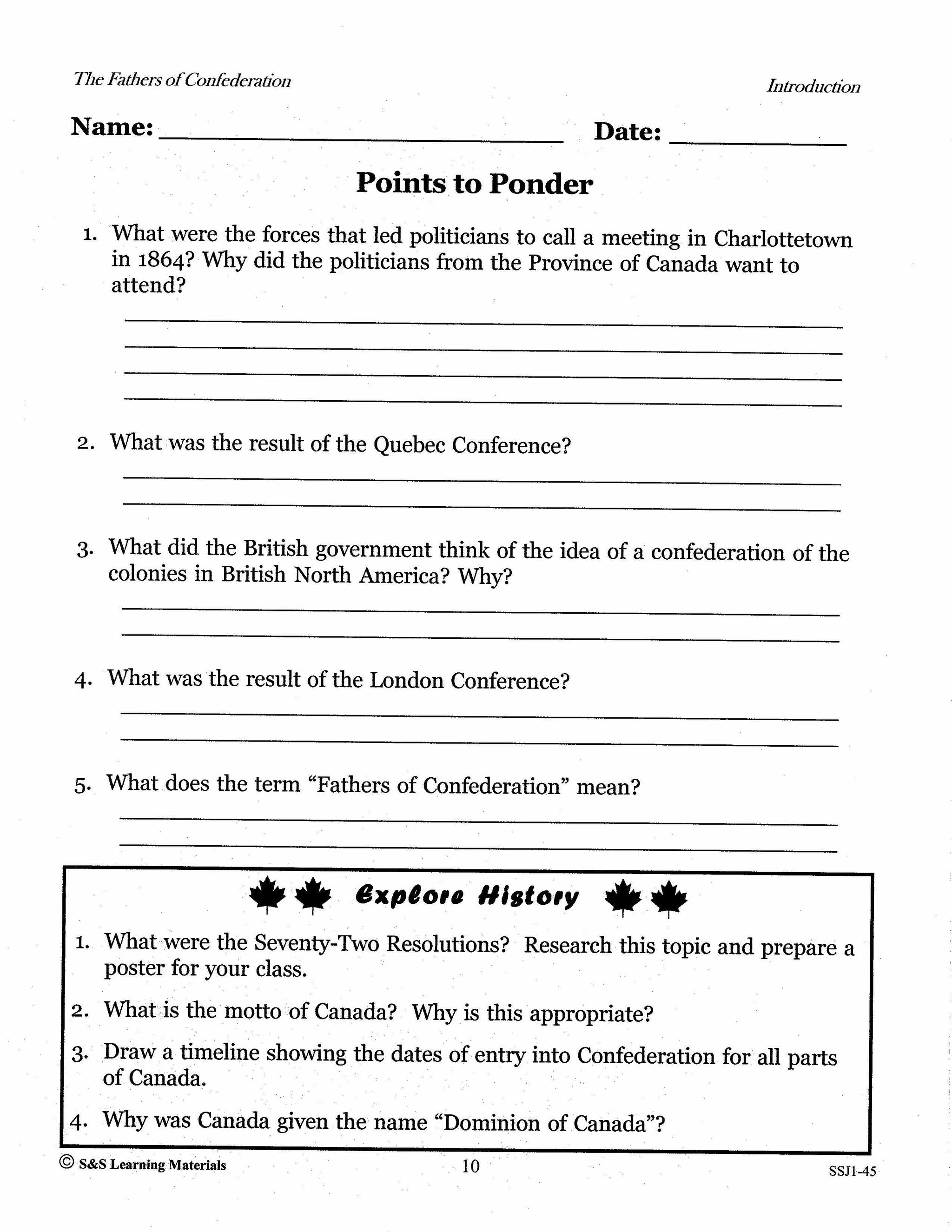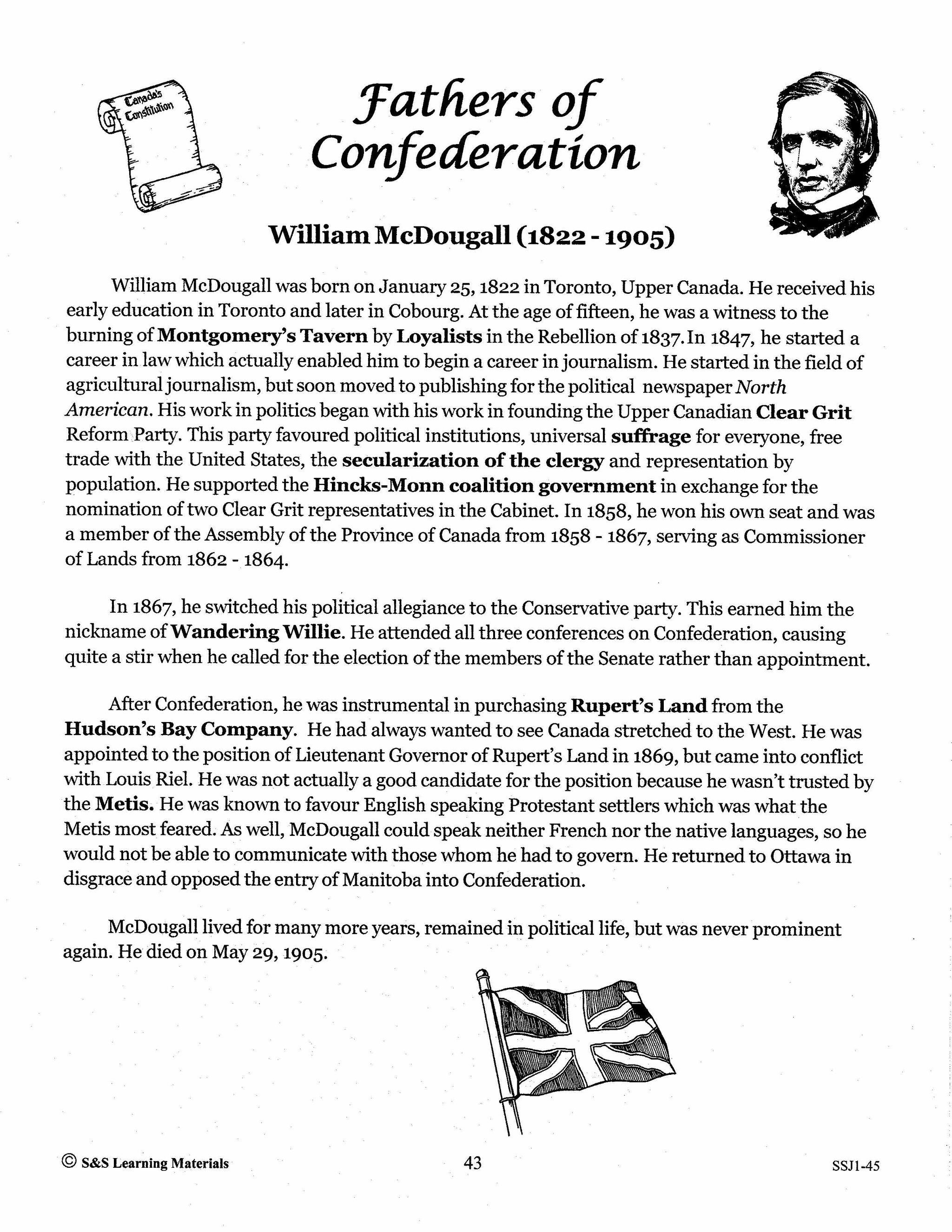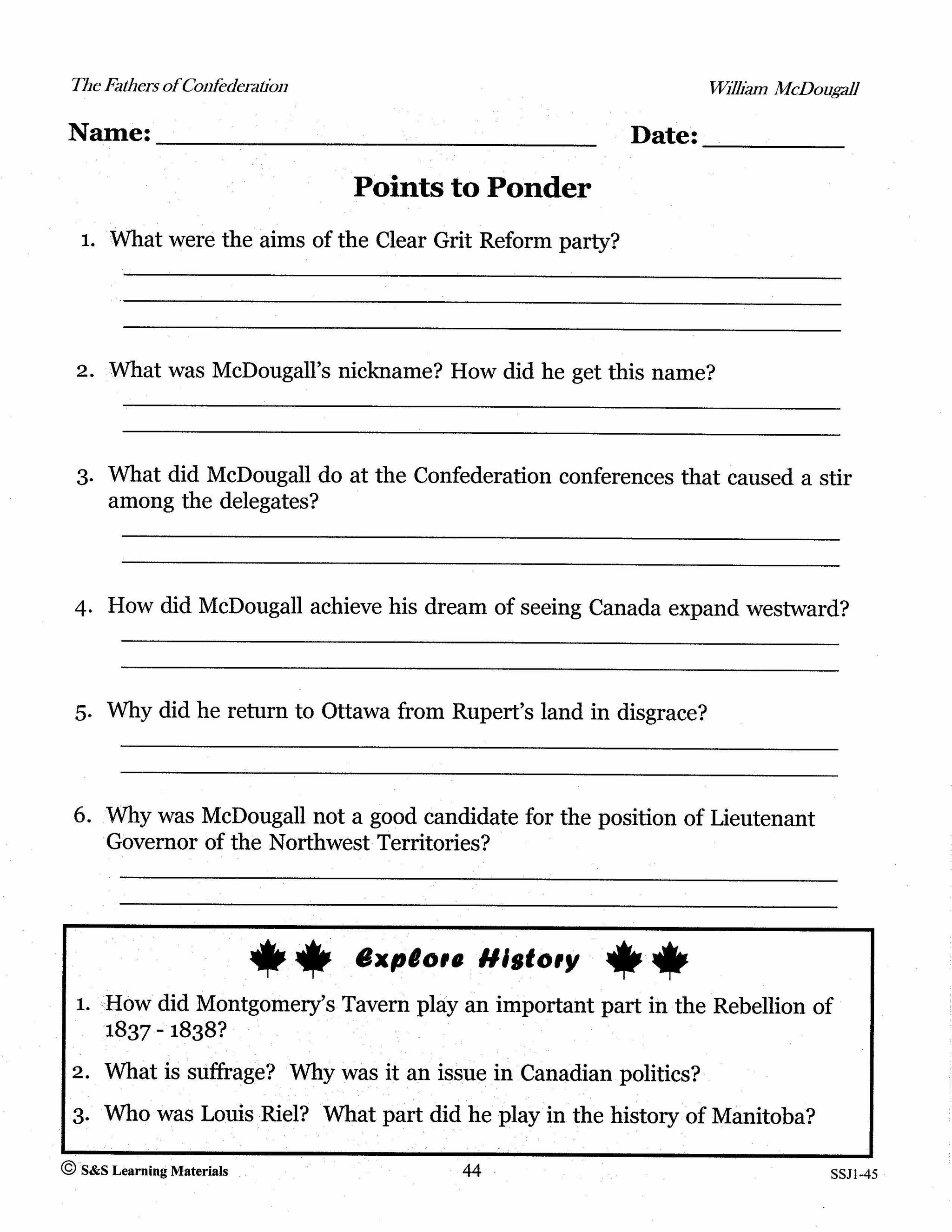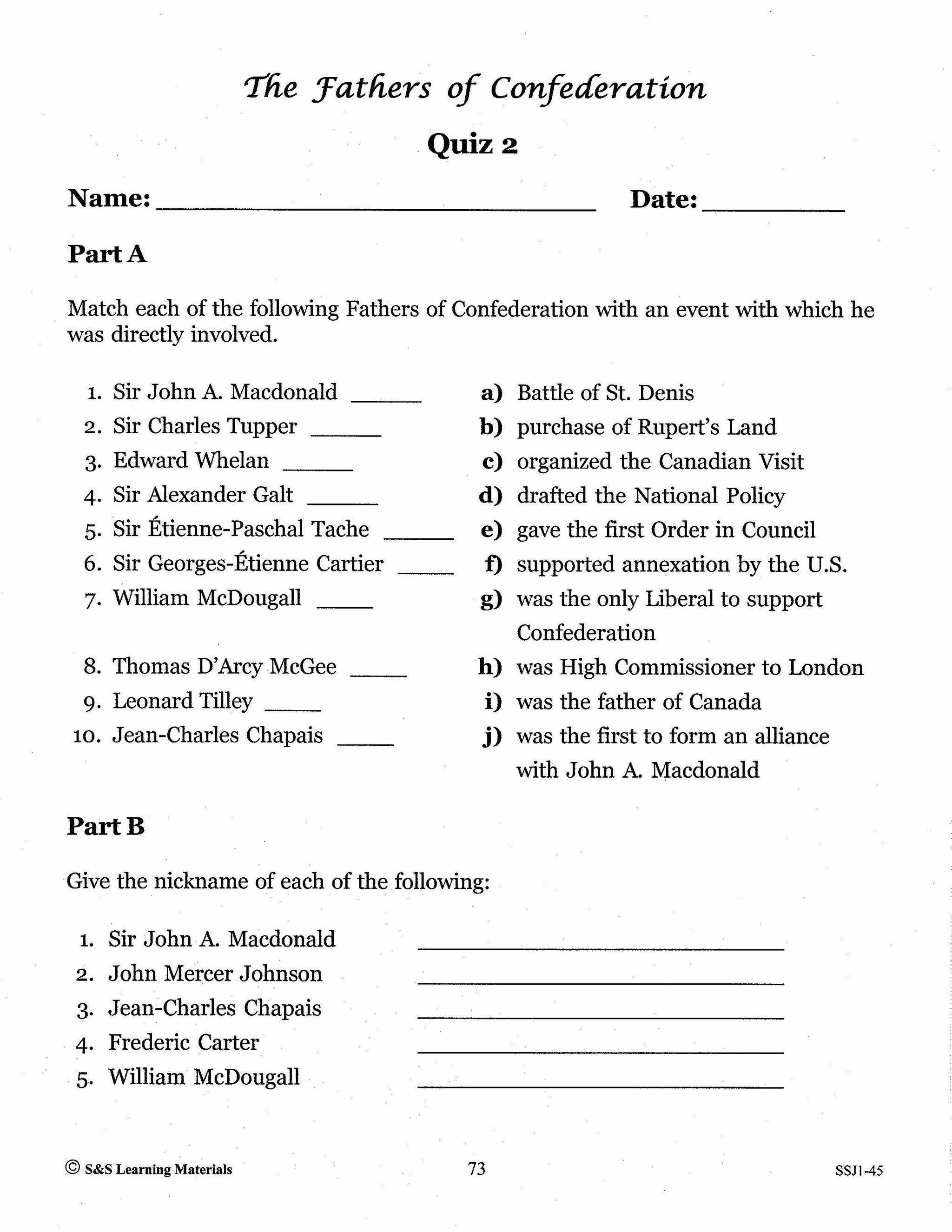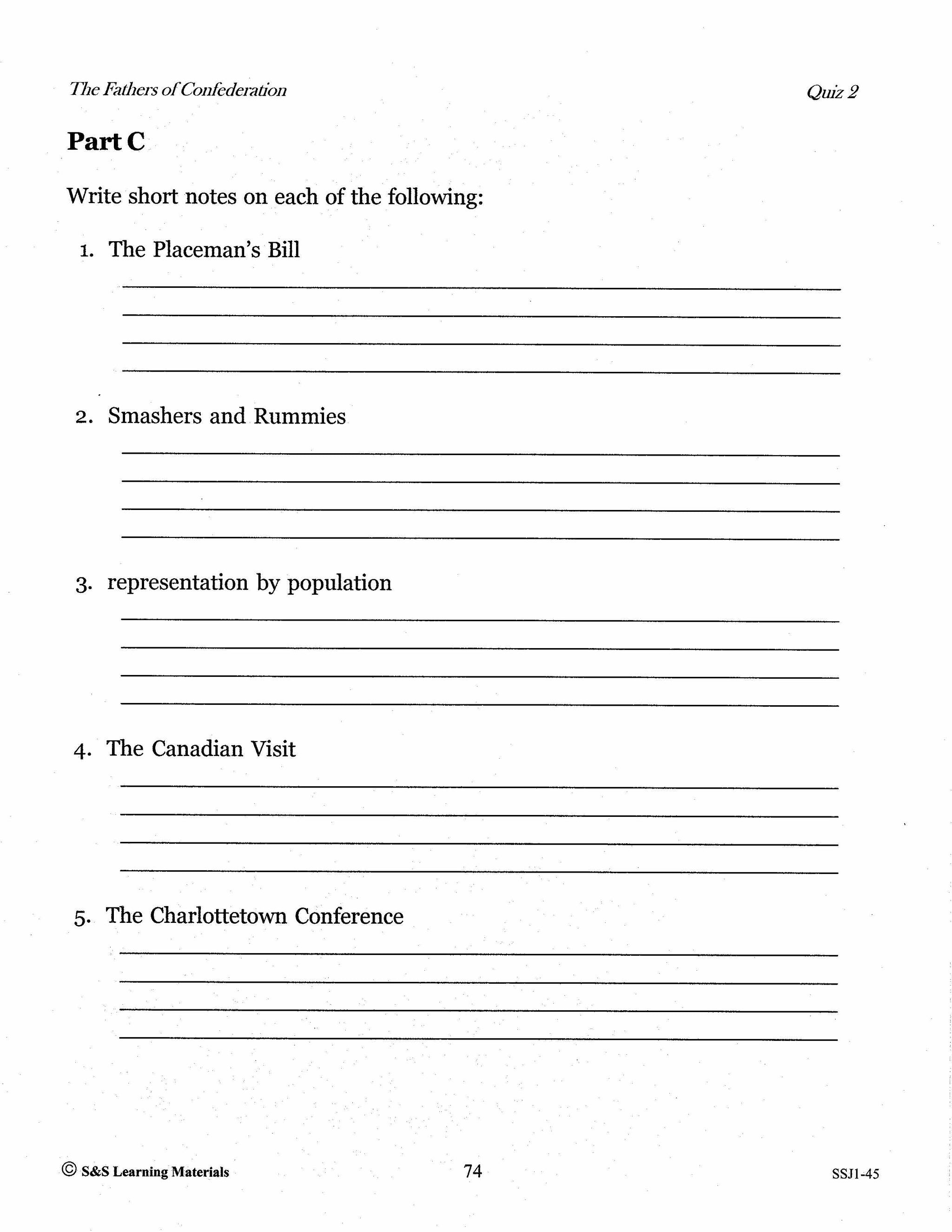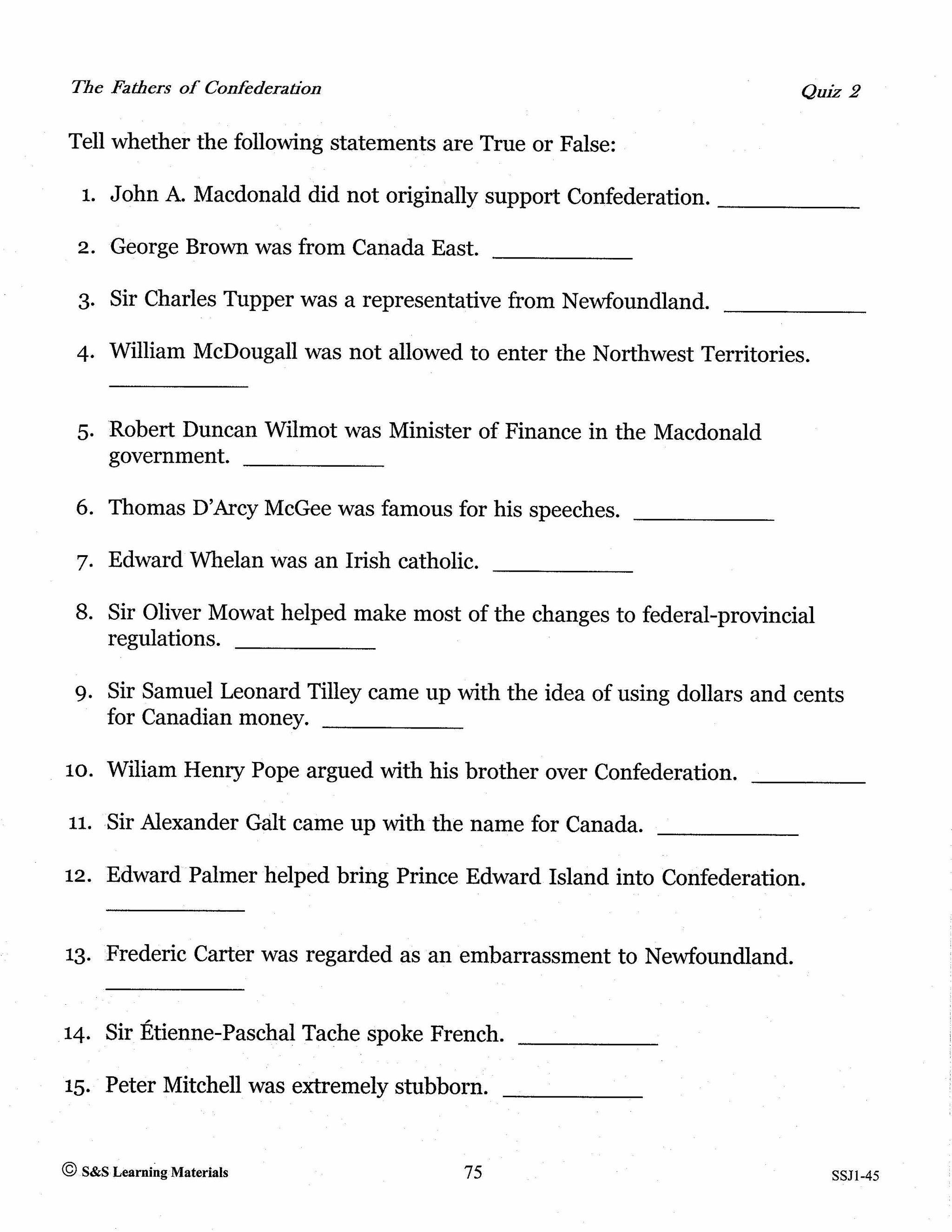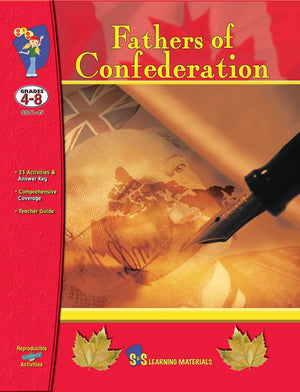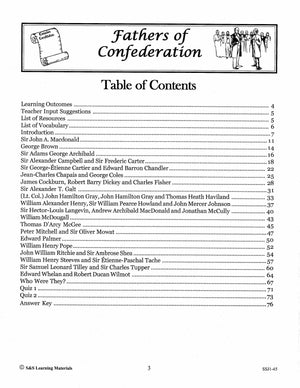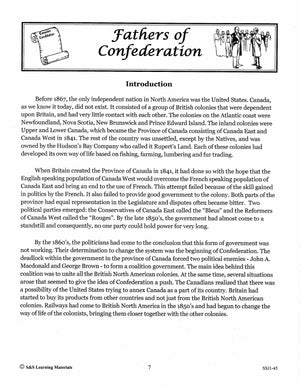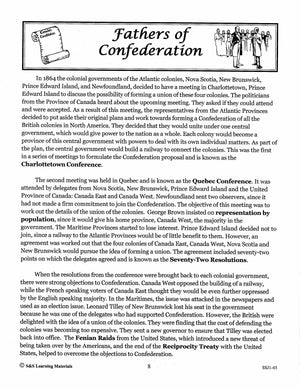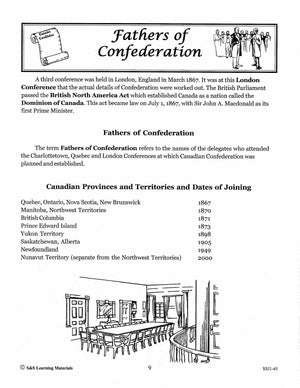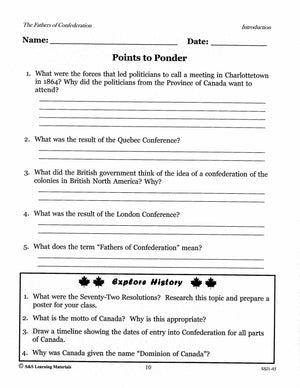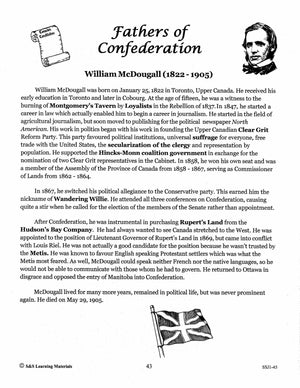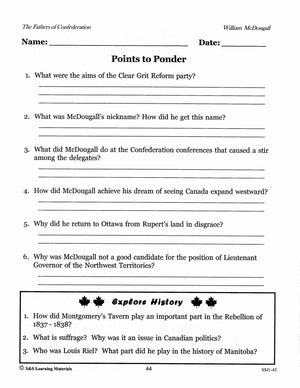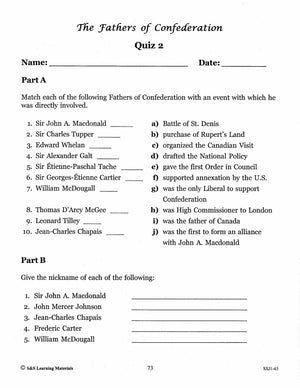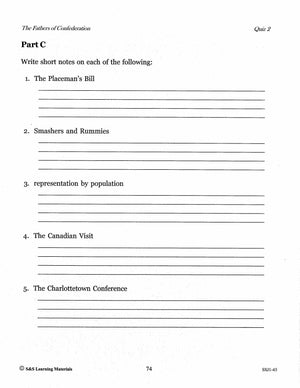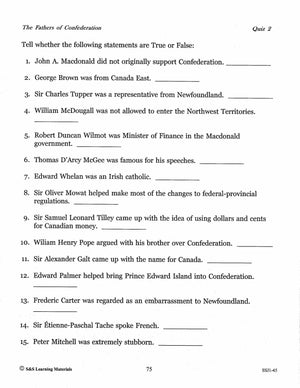Canada's Fathers of Confederation Grades 4-8
EBJ145
$22.99 CAD
Additional information:
- Author : Stanford, Frances
Students will learn about each of the father's of confederation. This group of individuals helped bring about Canada's confederation. Each of their different backgrounds and personalities influenced the development of Canada, and the trials they endured to bring about the joining of these diverse geographical areas.
On July 1, 1867, Upper and Lower Canada, New Brunswick, and Nova Scotia entered into a union known as a confederation and became the country now known as Canada.
At the end of this unit of study, students will:
- understand the meaning of the term "Fathers of Confederation"
- know who the Fathers of Canadian Confederation were and what they did
- understand the reasons for their actions
- demonstrate knowledge of the political situation in Canada at the time of Confederation
- be able to analyze the reasons used for forming a union of British North American colonies
- understand the significance of Confederation on their own lives
Information with Follow-up worksheets on the following Fathers of Confederation:
- Sir John A. Macdonald
- George Brown
- Sir Adams George Archibald
- Sir Alexander Campbell and Sir Frederic Carter
- Sir George-Etienne Cartier and Edward Barron Chandler
- Jean-Charles Chapais and George Coles
- James Cockburn, Robert Barry Dickey and Charles Fisher
- Sir Alexander T. Galt
- (Lt. Col.) John Hamilton Gray, John Hamilton Gray and Thomas Heath Haviland
- William Alexander Henry, Sir William Pearce Howland and John Mercer Johnson
- Sir Hector-Louis Langevin, Andrew Archibald MacDonald and Jonathan McCully
- William McDougall
- Thomas D'Arcy McGee
- Peter Mitchell and Sir Oliver Mowat
- Edward Palmer
- William Henry Pope
- John William Ritchie and Sir Ambrose Shea
- William Henry Steeves and Sir Etienne-Paschal Tache
- Sir Samuel Leonard Tilley and Sir Charles Tupper
- Edward Whelan and Robert Duncan Wilmot
Comment: "Well organized, lots of great content! Perfect for a supply day.", R. Aucoin

